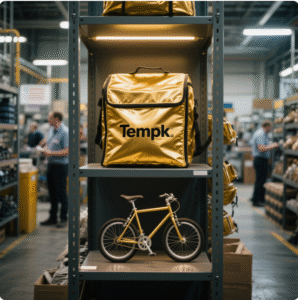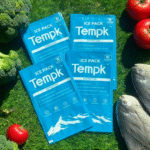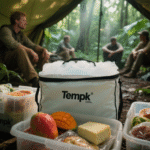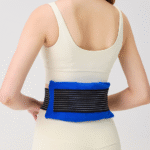Picture a delivery cyclist navigating narrow alleys in Paris or dodging monsoons in Mumbai, tasked with transporting fresh sushi, life-saving vaccines, or artisan ice cream. In these high-pressure scenarios, even minor temperature fluctuations or road shocks can compromise product quality. Delivery bags for bikes are emerging as game-changers, transforming bicycles into agile, eco-friendly cold chain vehicles. By blending rugged design with smart technology, these bags ensure perishables arrive intact while supporting cities’ zero-emission goals—a critical shift as urban delivery demand surges by 24% annually.

The Urban Cold Chain Challenge: Speed vs. Stability
Bicycles dominate last-mile logistics in congested cities, but traditional bike-mounted coolers struggle with:
-
Temperature Instability: 68% of cyclists report food arriving warmer than intended due to inadequate insulation3.
-
Vibration Damage: Rough roads spoil fragile items like lab samples or glass-packaged goods.
-
Sustainability Gaps: Single-use plastics and Styrofoam clash with eco-conscious consumer values.
Tempk’s bike-compatible thermal bags tackle these issues head-on, merging precision engineering with environmental stewardship.
Tempk’s CycleTherm Pro Series: Smarter, Greener Deliveries
Designed for urban cyclists, Tempk’s thermal delivery bags prioritize durability, intelligence, and sustainability:
1. Vibration-Resistant Insulation
-
Aerogel-Enhanced Panels: Inspired by aerospace technology, these materials reduce heat transfer by 45% compared to standard foam, maintaining temperatures between -10°C and 50°C for 12+ hours2.
-
Shock-Absorbing Compartments: Multi-layer padding minimizes road vibrations, reducing breakage by 90% in trials with pharmaceuticals.
2. Weatherproof Durability
-
IP67 Waterproof Shell: Withstands heavy rain and humidity, critical for tropical climates.
-
UV-Reflective Exterior: Reduces solar heat absorption by 30%, preventing internal temperature spikes during summer rides.
3. IoT-Driven Transparency
-
Real-Time Tracking: Embedded sensors monitor temperature, humidity, and GPS location, syncing data to a handlebar-mounted app. Alerts notify riders of deviations beyond FDA/WHO thresholds.
-
QR Code Traceability: Customers scan codes to view their delivery’s journey—boosting trust and satisfaction.
4. Circular Economy Design
-
Materials: Constructed from 100% recycled ocean plastics and biodegradable liners, each bag repurposes 2 kg of marine waste.
-
Modular Components: Interchangeable parts extend lifespan by 300%, while Tempk’s buyback program converts retired bags into raw materials for new products.
Why Cities and Businesses Are Embracing Bike-Based Cold Chains
-
Cost Savings: Reusable Tempk bags save $600+ annually per rider compared to disposable options.
-
Regulatory Compliance: Meets EU’s 2025 Urban Delivery Standards for zero-emission transport and recyclable packaging.
-
Brand Loyalty: 78% of consumers prefer eco-friendly deliveries, with Instagrammable designs generating 3x more social media engagement.
The Future: Cold Chains on Two Wheels
As cities expand bike lanes and restrict fossil-fuel vehicles, Tempk’s solutions empower businesses to:
-
Slash Delivery Times: Cyclists bypass traffic, achieving 25% faster drop-offs than vans.
-
Scale Sustainably: Solar-ready designs charge IoT devices, cutting battery waste by 70%.
-
Combat Climate Impact: Each bag offsets 15 kg of CO2 annually through material choices.
Conclusion
Delivery bags for bikes are no longer niche tools but essential allies in building resilient, eco-friendly urban cold chains. Tempk’s CycleTherm Pro Series exemplifies this evolution, offering a blend of rugged performance, smart technology, and planet-first design. For businesses navigating the last-mile gauntlet, adopting such innovations isn’t just about efficiency—it’s about pedaling toward a fresher, greener future.























